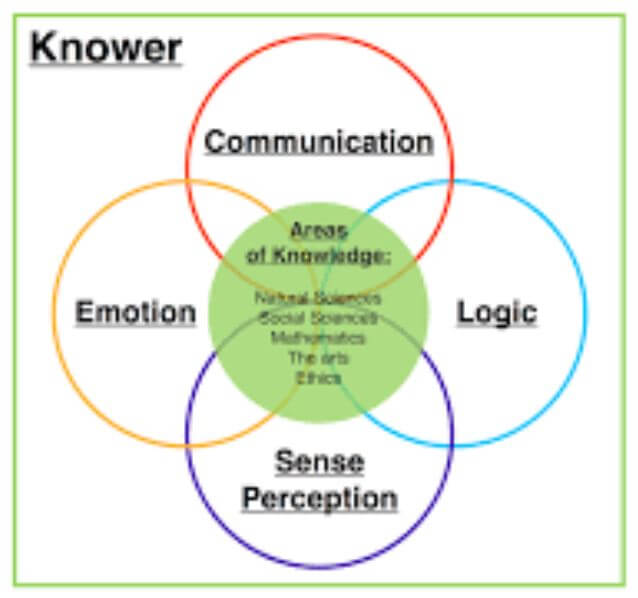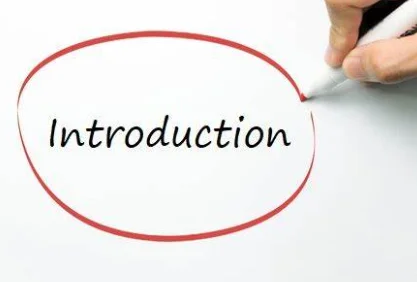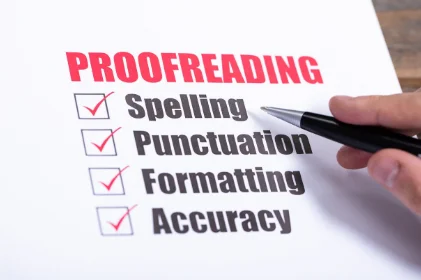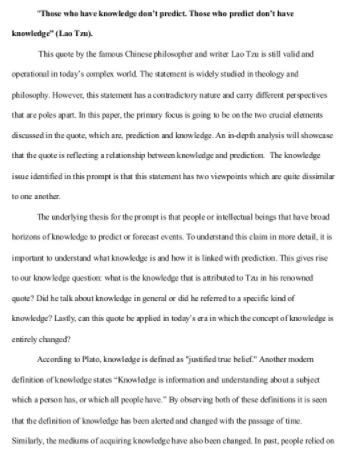How to Write a Good TOK Essay: A Simple Step-by-Step Guide

Most students and scholars find it difficult to write a proper Theory of Knowledge essay. This comprehensive step-by-step guide will teach you how to write a good Theory of Knowledge (TOK) essay that will score high grades.
As you already know from your tutor, it is an essay with a word count of 1200-1600 words that discusses problems through comparisons and contrast. If you have this difficulty, check our college essay help service for assistance.
Before we venture into the various steps, it is important to understand the key terminologies used in this essay and what they represent.
Let us Write your Essays! No Plagiarism
Get an expert writer to score an A in your next essay assignment. Place your order today, and you will enjoy it.
Terminologies used in TOK essays
1. Areas of knowledge
these are branches of knowledge that challenge us to know more about specific topics.
These are eight in number. They include:
- History
- Arts
- Ethics
- Mathematics
- Natural sciences
- Human sciences
- Religious knowledge
- Indigenous knowledge
2. Ways of Knowledge

They answer the question ‘How do we know what we know
These include:
- Memory
- Intuition
- Reason
- Emotion
- Sense /Perception
- Imagination
- Language
- Faith
3. Knowledge Question (KQ)
These are questions that contest knowledge in order to provoke a discussion rather than one definite response.
4. Real Life Situation (RLS)
This is a situation in the real world that is derived from the knowledge question.
A theory of Knowledge Essay mostly begins with a knowledge question which should begin with phrases like:
- “To what extent…”
- “How do we know that…?”
- “How reliable is…”
- “Is it appropriate…”
- “How certain is…”
These questions provide you with the room to have various perspectives regarding your theory of knowledge. In addition, ensure that your question is all about specific knowledge but not a subject like anthropology or sociology.
A knowledge question should relate to the three aspects of knowledge more specifically the area of knowledge such as human science, natural science, mathematics, history, or any ways of knowing such as language, reason, intuition, or imagination.
Brief summary of the steps to write a TOK essay
For a deeper guide, read our step-by-step guide to writing A+ essays so that you can gather more on the art of passing such assignments. In preparation for writing this essay, you need to undertake the following:
- Select a title from the list provided by the IB.
- Understand the instructions and the marking criteria.
- Gather your ideas
- Organize your ideas in preparation for writing
- Write the essay
Step-wise Guide How to write a good TOK Essay
Step 1. Write a good Title

Select a title from the list provided by the IB. The title should be one that inspires you most, is realistic, and is one you can connect to. The title requires you to compare and contrast the ways of knowledge with one or more areas of knowledge.
As you do this, be as clear as possible as you present the two sides of the title. For instance, the questions can be like:
“Compare the role played by intuition and language in at least three areas of knowledge.”
“When scientists, mathematicians, and religious people say that they have analyzed something are they using the word “analyze” in the same way?”
Moreover, as you select the title, ask yourself the following questions:
- Are you interested in the chosen title?
- Is the title chosen relevant to what you will discuss?
- Are you familiar with the concepts and keywords in the title?
You can now re-write the title in your own words by rephrasing. For instance:
“When scientists, mathematicians, and religious people say that they have analyzed something are they using the word “analyze” in the same way?”
The above topic asks you to compare and contrast how science, mathematics, and religion use analysis to know about an issue. This provides you with a vivid picture of the titles, expectations, and how best to approach it.
Step 2. Prepare the Essay Outline
This is the framework for the organization and address of points. It is worth noting that there is no correct way to answer the knowledge question. Rather it is how you relate your arguments to the question.
This is an organized way of presenting your ideas since you already have knowledge issues. You, therefore, will come up with a knowledge question from your own inspirations and experiences.
This arises from the brainstorming session, the various Areas of Knowledge and acts as a guide to your essay in a clear way. Your outline depends on the knowledge question.
For instance: ‘Compare the role played by faith and perception in at least two Areas of Knowledge.’ In this case, the two areas of knowledge can be Religious Knowledge and Ethics.
From the question above, your outline will take a five-paragraph format with the following:
Step 3. Write a captivating Introduction

This contains the details of what you will say together with some background information.
An introduction is one of the main parts of an essay and should be taken seriously.
It interprets and explains the title. It also provides keywords. The introduction provides the contact between the writer and the reader.
Should be as captivating as possible so as to draw the attention of the examiner and keep him hooked to the essay.
The introduction paragraph has a Knowledge Issue hence must have an overview of the knowledge question, a subtle overview of the Ways of Knowledge, and the Areas of Knowledge to be discussed in the essay.
Step 4. Craft a good Thesis Statement
This step involves formulating the thesis statement that your essay will hold. It is more or less the view of opinion that you hold on it. Your opinion and whatever is being written on is stated here with a brief explanation of what is being written about.
In addition, it is here that you evoke the curiosity of your readers. The thesis statement is stated here in the introduction to capture the attention of the reader.
The thesis statement technically makes the reader know your position for or against your stand in the essay. In doing this, we get a clearly laid-out structure of the essay.
How to write a good TOK Thesis statement
This is a key claim in the essay and therefore links all the ideas in the essay. It comes from the title, notes made during the brainstorming session, and the essay outline.
Choosing to have the Thesis Statement at the end of the essay means that you already have a clearer position of argument in the essay, so it is easier to have a much clearer thesis statement.
For instance, if the topic was: Compare the roles played by Language and Memory in at least two Areas of Knowledge. Let’s take Mathematics and Ethics as our Areas of Knowledge.
An Example of a good TOK essay thesis might look like this:
“Although Language and Memory play a key role in Mathematics, the memory of the Mathematician eventually must be able to prove a concept through workings while ethics are explained and understood through societal patterns and behavior which are the proofs of their existence”.
Therefore, the arguments and counterarguments support the thesis statement.
Step 4. Brainstorm on the Points to Prove your Thesis
A brainstorming session requires you to have a flow of ideas regarding the question before the actual writing. Here, you have to reflect on how to analyze your title.

Figure out similar ideas against opposing ones. Do this by writing everything about the title that crosses your mind and make this continuous without stops or breaks for maximum brainstorming.
Go through whatever you have brainstormed as you sieve out related or contradicting areas. Ideas that do not fall into either of the groups are placed on their own.
In doing this, you need to be keen in noting the examples you have brainstormed about since they will be helpful in the body.
The Knowledge Issue is important when identified. This is understanding yourself, others, and the world in your quest for knowledge. Any Knowledge Issue relates to one or two Areas of Knowledge.
“When scientists, mathematicians, and religious people say that they have analyzed something are they using the word “analyze” in the same way?”
In the example above, the Areas of Knowledge are Mathematics, Religion, and Science. In addition, as you gather your ideas, think deeply about the topic and bring your ideas together by sort of drawing a mind map.
This makes your work organized and not scattered, giving you a chance to control the flow of your essay.
Step 5. Write the Body paragraphs
This consists of paragraphs with arguments and counterarguments supporting the writer’s viewpoint.
The body has:
- Topic sentences which is the main idea that supports the thesis.
- Evidence to justify the thesis
- Counterclaim against the thesis
- Reasons why the counterclaim is not sufficient
- A paragraph with a divergent opinion
- A conclusion
The arguments, ideas, and examples are supposed to be detailed so a lot of time is spent on them. A proper paragraph transition is key to avoid the essay ending up to be messy and flow less.
As you argue out your points of view consider the target audience and ask yourself:
- Is it what they want to hear?
- Is it important to them?
- What will it take for them to understand your point of view?
It is proper that you know the assessment methods and guidelines of this essay. This essay has four areas of assessment which are:
- How you understand knowledge issues. The essay must prove a deep knowledge of issues with proper comparisons and links of at least two Knowledge Issues.
- Independent thinking and relevant examples that support the knower’s perspective.
- Justification of points through arguments, insight, and counter arguments so as to provide thorough analysis of issues.
- Proper essay structure, explanations of key ideas, facts, and citations of references where needed. In addition, there has to be a proper flow of ideas.
As you write, pay attention to the instructions of the essay. A question may ask you to ‘evaluate.’ Or assess a claim. Here you must therefore know how to argue ‘for’ or against.
If questions like “what way or to what extent” appears, you will provide both sides ‘for’ or ‘against’. On the other hand, if it is a direct question, just address the various ways you are ‘for’ or ‘against’ the argument.
Step 6. Write a summarizing Conclusion
Summarizes the entire paper and should be short, simple, and informative. The conclusion restates the thesis. It answers the title fully as you relate back to the various counterarguments and limitations in the Areas of Knowledge.
It also brings the essay to closure. The writer re-affirms his position in the essay from the subsequent paragraphs.
It, therefore, re-writes the thesis and knowledge question in a slightly different way by restructuring the key arguments in a new format.
Step 7. Cite and reference your sources
Most of the examples used will require citations and references. External sources are cited using the MLA or the APA. This depends on the instructions issued by your instructor or teacher. Cite:
- Little known facts but not common or well-known facts.
- Someone else’s exact words with quotation marks.
- Statements that directly follow another person’s line of argument even if you are paraphrasing.
Step 8. Proofread and Finalize your essay

Ask a different person to read your essay to see if it flowing, structured, and organized. You will have to re-read the essay so as to:
- Improve on the language.
- Ensure that your arguments are thoroughly stated and supported.
- Exhibit rhythm and flow.
- Conform to the word count by improving quality.
- Confirm whether the knowledge issue has been properly addressed in the essay.
- Check on grammar and spelling errors to remove glaring and obvious contextual mistakes.
How to Structure and Write good TOK Essay Paragraphs
This section will give you a guide on how the TK essay should look like. It has the outline, the introduction, the body, and the conclusion of various paragraphs.

The First Paragraph
This is the introduction, and it explains and interprets the title.
It provides the technical and keywords together with their meanings. In addition, it gives a knowledge issues on the title.
The Second Paragraph
This part comprises arguments and their counterarguments that are clearly stated and explained in separate paragraphs.
Here you tackle the first area of knowledge. In the question below for example:
‘Compare the role played by faith and perception in at least two Areas of Knowledge.’ We can pick Religious knowledge as one of the Areas of Knowledge and elaborate on how it answers the title.
This is done with supporting examples and proper counterarguments. You can also note any disadvantages coming out of your examples.
The Third Paragraph
Here you handle the second Area of Knowledge, which our case, is Ethics. Examine how Ethics answers your topic as you provide relevant examples. Moreover, be keen on any counterarguments against the title or any disadvantages that come out of the provided examples.
The Fourth Paragraph
This paragraph examines the third Area of Knowledge if applicable by answering the topic with relevant examples, plus any other relevant counterarguments.
In other circumstances, you may decide to have an essay structure with one main argument and one main counterargument. This means that your essay will have four paragraphs. These are:
The first paragraph has an introduction that explains the knowledge issue. The second paragraph has the main argument accompanied by a justification together with one or two supporting examples.
The third paragraph has the second main argument, a justification, and supporting examples. The fourth paragraph has a conclusion and an example.
Last Paragraph
Here you give perspectives and extensions of your arguments. Try and have a different perspective after having a different approach to the question as a result of a shift in opinion from the insights included in the essay.
Moreover, you can explore a number of unsolved issues newly revealed. In addition, you can explain some challenges or weak points in your essay. This shows that you have not explored everything about the essay and you should get room to add more.
The Do’s and Don’ts when writing a TOK Essay

Here are a few brief Dos and guidelines on the actual writing. You can watch more on getting an A in TOK essays in case you want more of these tips.
First, ensure the essay is precise and economical. The word limit is 1200-1600. The introduction and conclusion should be short with an average of 200 words each.
The body paragraphs should be longer since it is here that the information is explained in detail. In the body paragraphs you can refer to:
- Two Areas of Knowledge
- Main argument
- Main counter argument
The Dos:
- Include a Theory of Knowledge and an Area of Knowledge
- Use relevant connections with interesting points and facts
- Create an outline to guide you
- Do a lot of research through class notes, websites and even talking to people
- Provide appropriate information on the topic Take breaks to reflect and come up with new ideas
- Refer to other Theories of Knowledge essays written by other people
- Use the relevant language and vocabulary
- Keep going through the essay while editing
- Provide meanings of key words
- Write well on a neat paper and if printed make it clear
- Be clear and precise
- Each paragraph should address the topic material
- Discuss with others so as to get a new perspective
- Use examples that are objective
- Remove all the vague words
- Read the essay aloud to identify the areas that do not flow well
- Make the necessary corrections
The Don’ts
- Do not use dictionary definitions.
- Do not go over a paragraph or under paragraph your essay.
- Avoid going overboard with meaningless information.
- Do not use clichés
- Do not come up with your own topic unless instructed to do so.
The above criteria will help you to come up with an excellent Theory of Knowledge essay if you follow it step by step putting into consideration all the key areas outlined. Check out a guide on how to write issue papers and learn more on this.
Jessica Kasen is experienced in academic writing and academic assistance. She is well versed in academia and has a master’s degree in education. Kasen consults with us in helping students improve their grades. She also oversights the quality of work done by our writers.






